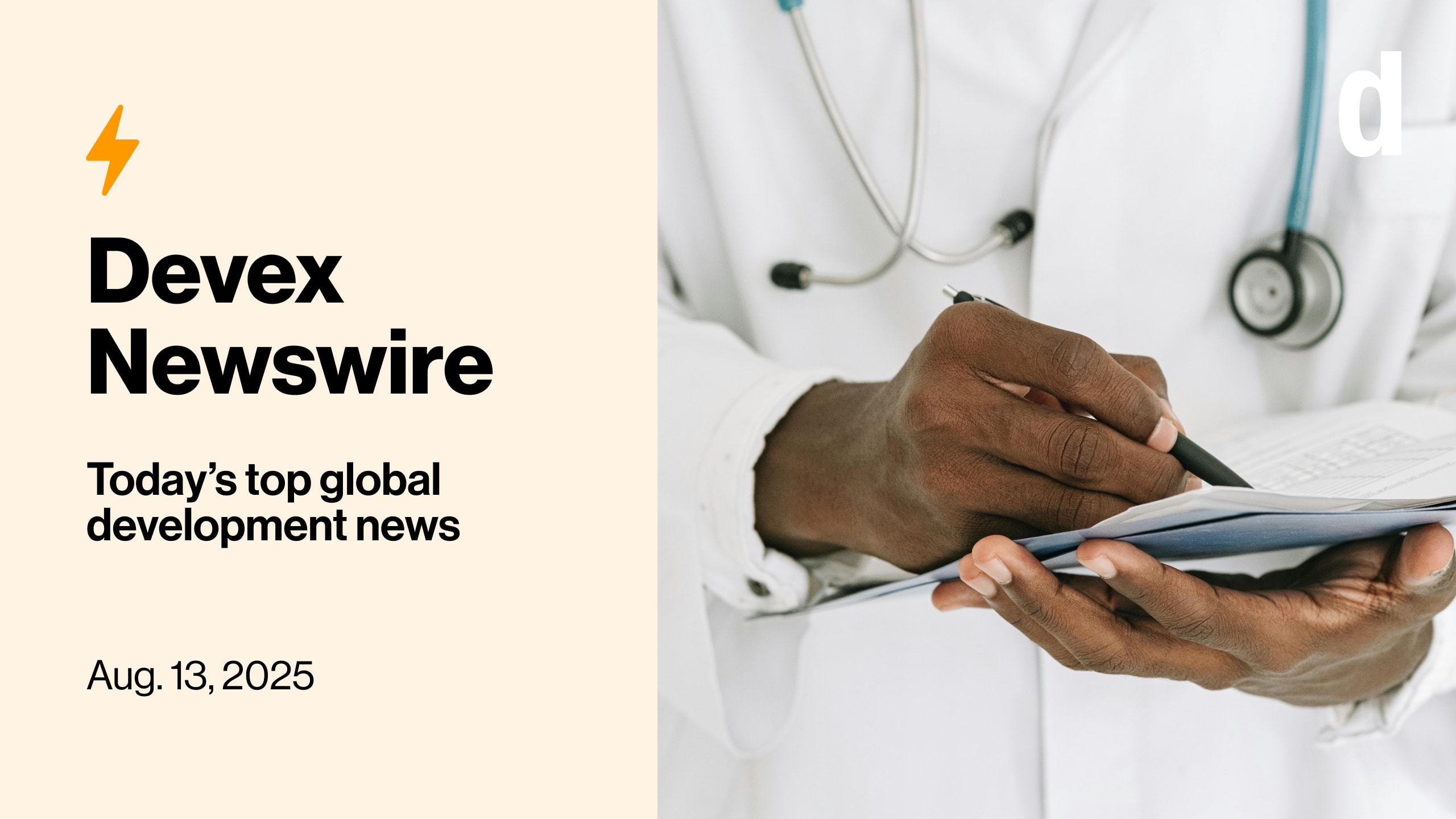
“People need to wake up to the fact that, when it comes to health, there are deep disparities that must be addressed,” says Kevin Ali, CEO at Organon, a global health care company focused on improving access to innovative treatments for women’s health around the world.
With little health research and development, or R&D, dedicated to areas of health that specifically affect women, fewer novel drugs and treatments that directly address women’s health are coming to the market. “We can help address this and advance gender equity by investing more R&D dollars into innovations that specifically address the health issues faced by women and girls. Today I see much more activity in that regard. We need to dramatically accelerate that effort — commensurate with the need — going forward,” Ali said.
This was one of the driving factors behind last year’s launch of Organon — a spin-off of health care company Merck & Co., Inc. of Rahway, New Jersey, known as MSD outside of the United States and Canada, which has a portfolio of over 60 medicines and products and reaches patients in 140 markets. Organon has added a number of assets to its portfolio and pipeline since its launch in areas such as postpartum hemorrhage — excessive bleeding following the birth of a baby — and endometriosis — which is a condition that causes severe pain, affecting fertility — among others, where there is a significant need for more treatment options.
Marking the company’s one-year anniversary, Organon has launched the new Her Promise platform, which articulates an ambitious environmental, social, and governance strategy — including its associated Her Promise Access Initiative, which aims to prevent approximately 120 million unintended pregnancies around the world by 2030.
“Organon’s Her Promise platform works in service to several Sustainable Development Goals, including SDG 3 on good health and well-being and SDG 5 on gender equity,” Ali said. "We’re looking forward to collaborating with even more organizations to work toward these global and collective goals.”
Sitting down with Devex, Ali explained how the lack of access to contraceptive options impacts women’s health and what Organon is doing to help in this and other areas.
This conversation has been edited for length and clarity.
A recent study by the Guttmacher Institute found that 218 million women in low- and middle-income countries lack access to modern contraception, and a recent UNFPA report found that globally, 50% of all pregnancies are unintended. In what ways does the lack of accessible contraception impact women’s health and well-being?
The decision of when — and whether — to start a family is one of the most important choices a woman can make, and far too many women don’t have access to the information or options they need to do so. There’s new evidence to support that. But the trends haven’t changed for many years.
A critical part of our ESG strategy, and our recently launched Her Promise platform, is the Her Promise Access Initiative. In collaboration with global organizations, we’re working to improve access to family planning information, training, and contraceptive options around the world, especially in LMICs where there is such a disproportionate need.
“The list of women’s unmet health needs is too long.”
— Kevin Ali, CEO, OrganonThis work began under Merck at the Women Deliver conference in 2012, and now as a standalone company with a focus on women’s health, Organon is continuing that work by relaunching the Her Promise Access Initiative with a new name and as the centerpiece of our ambitious plan to help address unintended pregnancy as a significant global health issue.
Global initiatives are important, but so are country- and community-led programs. We saw that through a recently launched public-private partnership in Mexico. Our team there worked with approximately 17 NGOs to develop a new sexual and reproductive health program designed to help address teen pregnancy in the community surrounding our plant in Xochimilco, which is part of Mexico City.
Mexico has the highest teen pregnancy rate of the [Organisation for Economic Co-operation and Development] nations, and Xochimilco carries a disproportionate burden compared to other municipalities in the country. Over the course of the pandemic, the rate of teen pregnancy increased [by at least] 30%, leading to approximately 300,000 teen pregnancies, of which nearly 9,000 were below the age of 14.
While the government has made contraceptive options free to all citizens, there are significant gaps. Implemented by our local partners, the program will include mobile services, an app, and other innovative methods to provide education and access to family planning, with the goal of helping to reduce the number of unintended pregnancies. If successful, we hope to replicate it in other municipalities in Mexico City, Latin America, and other parts of the world.
What does Organon see as other pressing examples of the unmet health needs of women?
Women have vast unmet health needs, and the pandemic has only exacerbated already existing gender disparities.
You can look at fertility and ask: “Why is it that it's so expensive and why are the success rates so low?"
You can look at maternal health and ask: "Why do we have such an issue with postpartum hemorrhage being one of the leading causes of maternal mortality and morbidity globally?”
You can look within maternal health and ask: "Why do we have millions of babies a year born preterm? "
You can look at women’s health and ask: "Why don't we have more options to treat menopausal symptoms?"
Unfortunately, the list of women’s unmet health needs is too long. That’s why we are dedicated to finding, evaluating, and delivering health care interventions that help women and girls achieve their promise through better health. By addressing gender-related disparities in health, we build a more sustainable future for women, families, economies, and society.

What steps has Organon taken to address gaps in health care in its first year of operations?
Typically, most spin-offs from large companies do not focus on business development in their first year, but at Organon, we are a purpose-led company, which drives our business decisions. We’ve done six significant deals in the past year to expand our areas of focus, prioritizing areas where more options are needed.
We have expanded our areas of focus to include osteoporosis, postpartum hemorrhage; preterm labor; endometriosis; and bacterial vaginosis. We’re also seeking out nontraditional approaches. One example is our collaboration with Flat6Labs, a leading seed and early-stage venture capital firm in the Middle East. We are working together on the Femtech Accelerator Program, which helps support female-led startups operating in the digital health care space.
Would you have advice for other companies as they look to infuse purpose into their business strategies?
I would say that putting purpose first isn’t just about a feel-good moment. Living your purpose requires that it’s authentic and at the core of your business — otherwise it is not sustainable. By infusing purpose across our business, we believe we are creating a company with a triple bottom line.
The purpose of what we do at Organon has been such a rallying cry for every one of our employees, who have overcome what felt like the impossible — standing up a nearly 9,500-person company in the middle of a pandemic. At our company, we see women's health as not only a noble cause but also a sustainable commercial value proposition going forward. Purpose has been the driving force at the heart of all that, with our people working together in an effort to solve significant needs that people have today and, in turn, helping to secure a safer, more prosperous, and equitable future for women and girls around the world. The two don’t have to be mutually exclusive.








